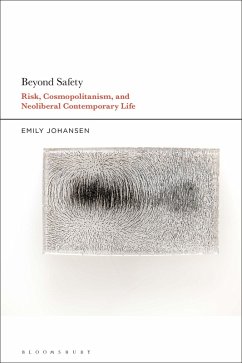Beyond Safety argues that concerns about the ethical impossibility of individual safety in the face of risks with increasingly obvious global consequences alters representations of neoliberal contemporary life. As the climate crises in the Caribbean and Australia, ongoing European refugee and American border crises, and, most recently, anxieties about Coronavirus illustrate, contemporary life is characterized by global connections that produce and reflect precarious outcomes and dangers. The ability to ignore risk or shift it to others underscores the fact that it is mitigable for particular segments of society while inescapable for others.
Emily Johansen investigates depictions of global danger and safety in contemporary transnational fictional and popular texts-those characterized by a narrative or representational emphasis on border crossing and global interdependences. She demonstrates how these texts use risk to question and re-imagine the norms and practices of contemporary global citizenship.
Beyond Safety thus brings together three of the central keywords of contemporary literary criticism of the last ten years (cosmopolitanism, precarity, neoliberalism) and shows how their intersection allows for a fuller conception of contemporary life and imagines a new global future.
Emily Johansen investigates depictions of global danger and safety in contemporary transnational fictional and popular texts-those characterized by a narrative or representational emphasis on border crossing and global interdependences. She demonstrates how these texts use risk to question and re-imagine the norms and practices of contemporary global citizenship.
Beyond Safety thus brings together three of the central keywords of contemporary literary criticism of the last ten years (cosmopolitanism, precarity, neoliberalism) and shows how their intersection allows for a fuller conception of contemporary life and imagines a new global future.









